Search and rescue charity has set up a base at Royal Albert Dock to deliver its on-water courses
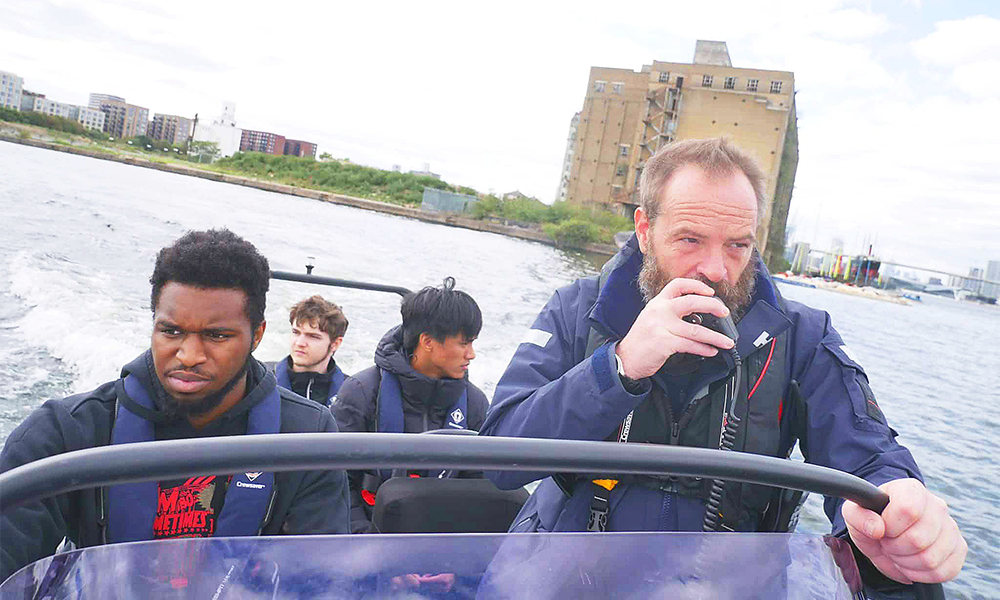
Subscribe to our free Wharf Whispers newsletter here
Atlantic Pacific International Rescue officially opened its training facility on the edge of Royal Albert Dock near Newham Council’s Building 1000 this month.
But what does the charity do and what will be on offer there?
We sat down with co-founder and chief operating officer Kate Sedwell to find out.
how did it all begin?
“We started in the north-east coast of Japan after the 2011 tsunami.
“My co-founder, Robin Jenkins, and I used to work at the University Of The Arts London.
“I was head of international projects and he was part of the interior and spatial design team, which delivered academic courses.
“We had many Japanese students, so we had really good relations with Japan and used to send a lot of staff and students there, but there was a pause in that while the country recovered from the disaster.
“In 2014 we were asked to start sending students and academics again to the north-east – where the tsunami had hit – to do an art project.
“We had no idea what was going to happen, but Robin went. He came back and said that they wanted him to build a sculpture in memory of everyone who had died.
“He said it was massively outside his comfort zone and thought it was inappropriate, because he hadn’t suffered any personal loss.”
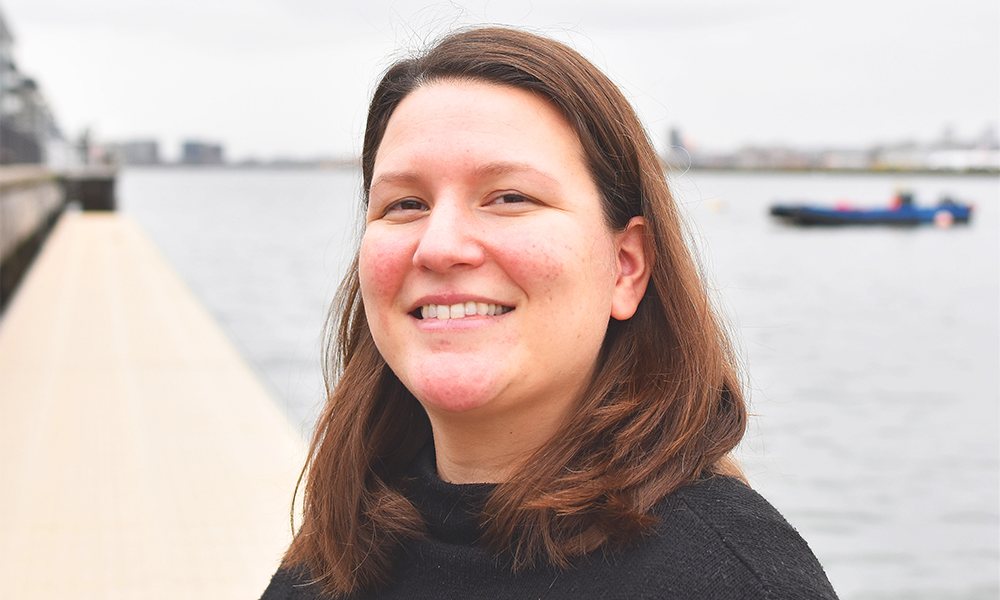
so what was the alternative?
“Robin said he really wanted to give Japan a lifeboat.
“My response was: ‘What? Where has this come from?’.
“He told me that a lot of people had drowned during the tsunami because there was no service to go and save them.
“People on the beaches could hear screams from the sea but weren’t able to help.
“Robin had volunteered with the RNLI’s Tower Lifeboat and had gone to a college in South Wales, which was famous for inventing that kind of inflatable boat.
“But when he asked people in Japan where their lifeboat service was, they told him the country didn’t have one.
“There is a coastguard, but people there have a different relationship to the sea – there isn’t a big leisure industry associated with it, so those getting into trouble are mostly in the fishing industry and they save one another.”
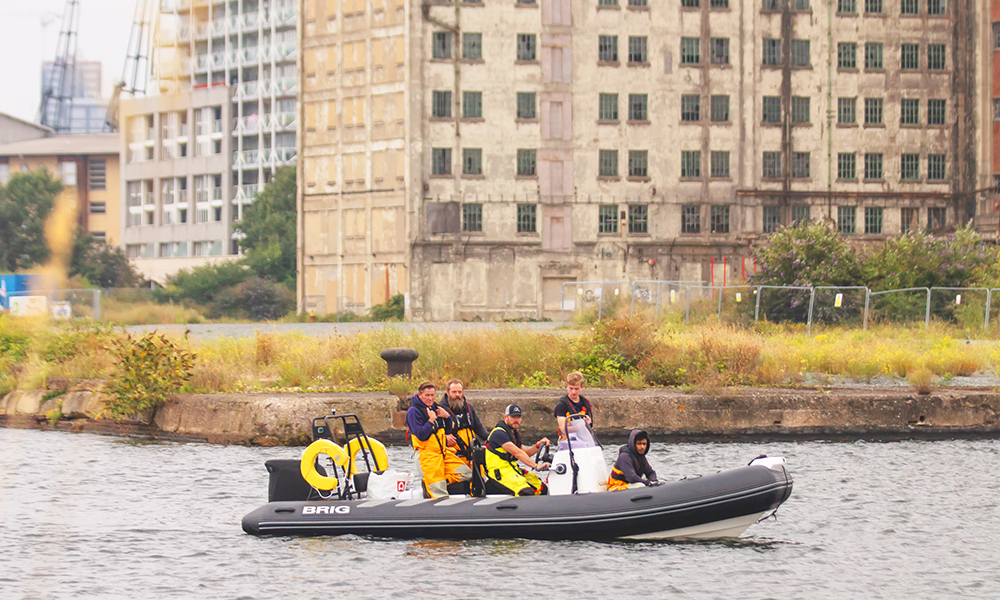
what was the next step?
“Robin came back to the UK and said that he would return to his old college and ask them if they would build us a boat.
“UWC Atlantic came up with a very small RIB and UAL students designed our lifeboat in a box.
“We used a 40-foot shipping container and they designed a crew changing room, a workshop and a boat to go in the end – it’s a one-stop shop for a lifeboat station.
“We sent the lifeboat to Kamaishi – a place that had been very severely damaged by the tsunami, which Robin had visited in 2014 – along with a team to train local people in how to operate it over there.
“This was the seed that started Atlantic Pacific and we still go back every year to deliver courses. It’s the first volunteer-run lifeboat service in Japan.”
what does the charity do today?
“We started working from UWC Atlantic’s base in Wales with students learning how to build boats and skills to tackle humanitarian disasters.
“What we realised while creating the lifeboat in a box is that there was nowhere in this country that you could go to train in search and rescue if you weren’t associated with one of the emergency services.
“In 2017, it was clear the Atlantic Pacific project was becoming too big for us to work at UAL and commit to, so we took a leap of faith and quit our jobs to run the charity full time.
“Robin moved back to Wales to work on search and rescue boat building and we started to develop the London project.”
which is now up and running?
“That’s right. We have a classroom and a workshop at Royal Albert Dock where we can deliver the courses that we now offer.
“We also have a workshop next door where we can tweak and maintain our fleet, which includes a brig that’s used for all our training – it’s currently moored at Royal Victoria Dock.
“Originally we were in Bermondsey, but we weren’t right by the water, so when we were invited to come and look for a home at Royal Docks, we did.
“The water is very good for beginners – there are no tides or currents – it’s a safer environment.
“It gives you some stability to practise the slow manoeuvres, which are fundamental for being good at search-and-rescue at sea, before trying them in more challenging waters.
“It’s a great location – well connected to our neighbour London City Airport, Heathrow and Gatwick, for people coming from Europe. Newham Council and the GLA have been really welcoming.”
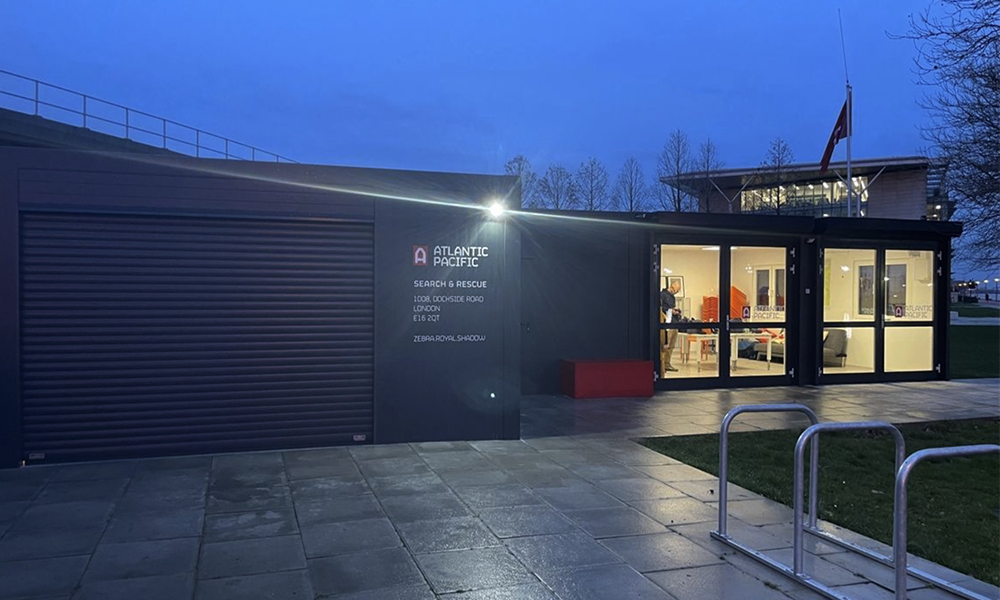
what does Atlantic Pacific offer?
“We work with young people in local schools and the reception has been really good.
“The curriculum is missing a trick in that it doesn’t empower young people to try out life-saving skills to see whether they would like a career in that sector.
“It could be medicine or comms they find interesting, rather than being on the water – but this is a chance for them to discover that.”
“The world is changing and we’re only going to see more disasters – especially flood-related ones – and there aren’t enough people ready and trained to go and help.
“The London Ambulance Service, for example, needs more staff and the search and rescue sector at a global scale is massively under resourced. We need people ready to deploy.”
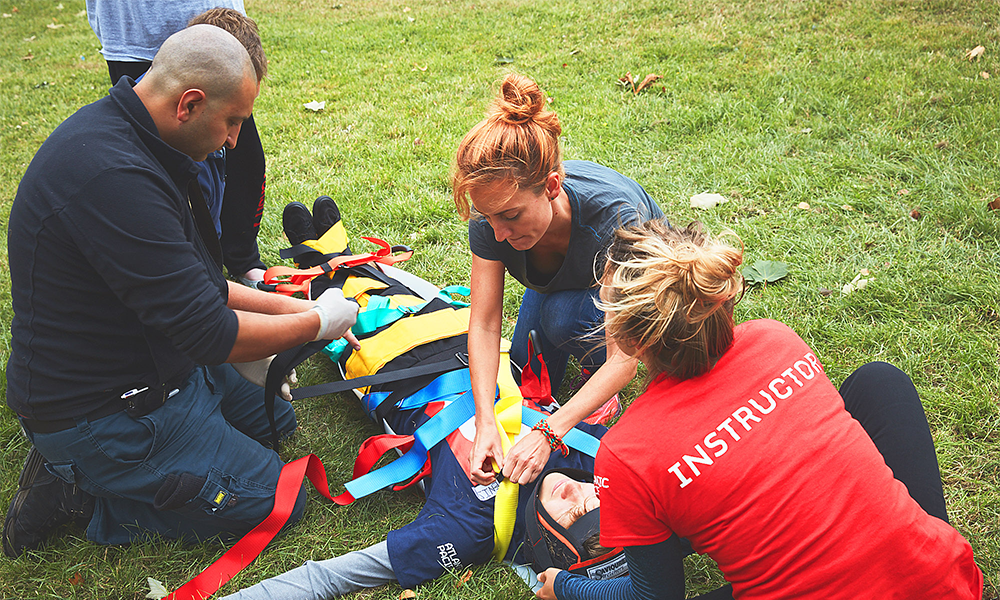
what publicly accessible courses does Atlantic Pacific run?
“You can find full details of all our courses online, but we run a Casualty Care Course over three days, a Search And Rescue Fundamentals Course over four days and a Royal Yachting Association Powerboat Level 2 Course over two days.
“We also have a five-day Introduction To Medicine Course aimed at ages 16-20, which is designed for young people who are about to embark on medical or emergency response careers.
“We work with instructors from the likes of the RNLI, IMRF and the Health And Safety executive to give people the best possible experience and grounding.
“We generally spend as little time in the classroom as possible so people get as much practice as they can.
“This might be rescuing our ‘Dead Fred’ – a 70kg man overboard dummy – to practice pulling casualties into the boat or it might be learning to manoeuvre safely in tight spaces or tow.
“But it’s also important to learn practical theory. In life-saving situations, you want to know the right knots to use.”
Prices for Atlantic Pacific’s courses start at £375 per person.
The charity will aim to assist with costs if they are prohibitive for individuals.
Find out more about Atlantic Pacific here
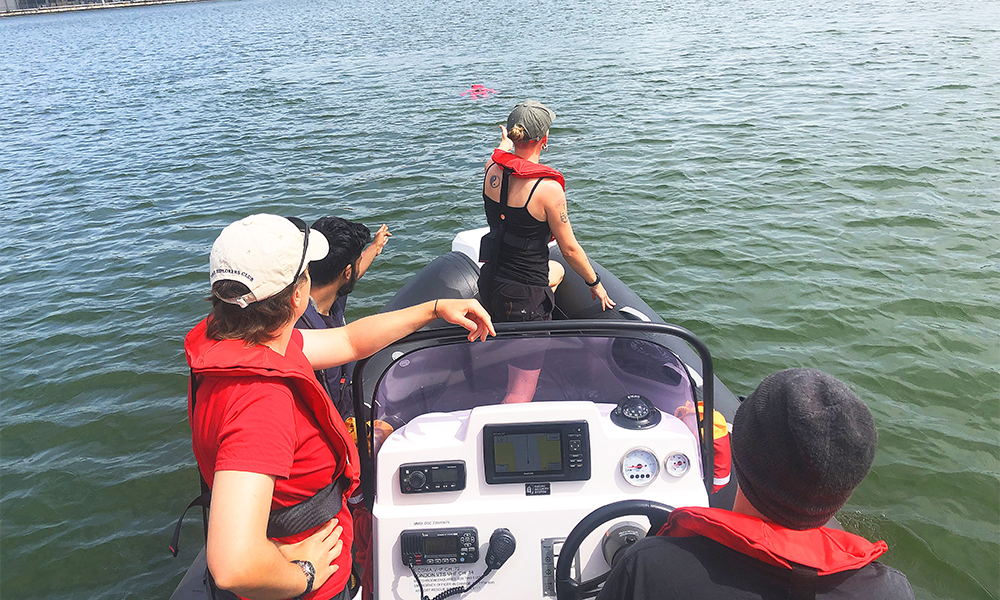
Read Wharf Life’s e-edition here
Subscribe to our free Wharf Whispers newsletter here
- Jon Massey is co-founder and editorial director of Wharf Life and writes about a wide range of subjects in Canary Wharf, Docklands and east London - contact via jon.massey@wharf-life.com



